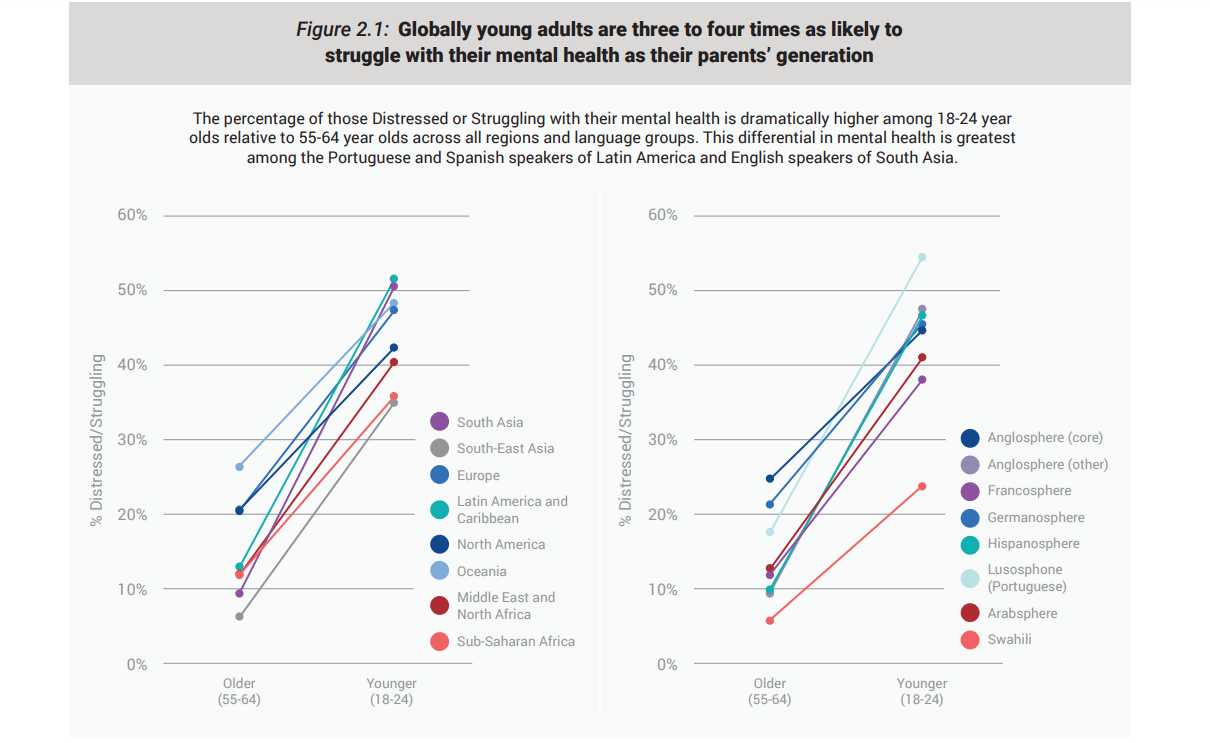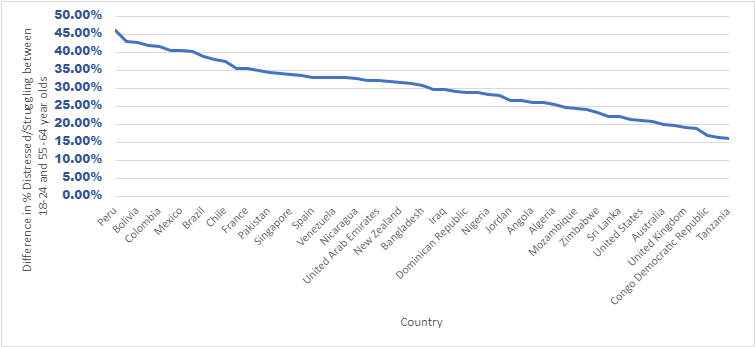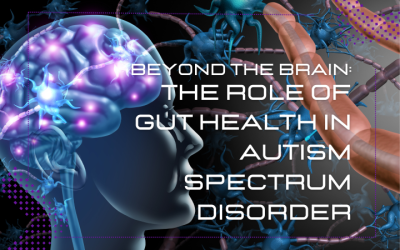Tackling the Global Decline in the Mental Health of the Younger Generation
A worrying trend observed across all regions and language groups is the global decline in the mental wellbeing of younger generations. The Mental Health Million data show that with each successively younger generation, there is a decline in mental wellbeing, as reflected in falling MHQ scores and a corresponding increase in the proportion of people who are distressed or struggling with significant mental health problems.
inXso is organizing an action to promote Mental Wellness Innovation.
We would like to invite all professionals innovating in Mental Health to network with each other and promote mental wellness.
Please stay tuned!
The Trend of Decline in Mental Wellbeing in Younger Generations
This decline is most pronounced along the Social Self dimension, which measures how we see ourselves in relation to others and our ability to form and maintain positive relationships. The Mood & Outlook dimension follows closely. The trend is evident even in populations measured before the Covid-19 pandemic. This suggests that the decline is not solely due to the pandemic.
Interestingly, studies prior to 2010 showed that young adults fared best in all countries and regions of the world measured. This reversal suggests a progressive global decline in younger generations since then, which is further supported by rising suicide rates among young adults over the past decade or more.

The percentage of those who are distressed or struggling is three to five times higher in the 18-24 age group than in the 55-64 age group across all regions and language groups. Latin America (both Spanish and Portuguese) and English-speaking South Asia have seen the largest increases from older to younger generations, while Sub-Saharan Africa is still relatively stable across generations.

Image Source: https://mentalstateoftheworld.report/wp-content/uploads/2023/02/Mental-State-of-the-World-2022.pdf
Peru, India, Bolivia top the list with over 42% more young adults 18-24 Distressed or Struggling with their mental health compared to those aged 55-64. Tanzania, Puerto Rico and the Democratic Republic of Congo are the lowest with only ~16% more young people struggling relative to their parents’ generation
This trend is a cause for concern and it is vital to address the underlying factors that contribute to it. It is essential to promote young people’s mental wellbeing and resilience, and to provide them with the necessary tools to cope with stress and emotional challenges. This includes promoting positive social interactions and building self-esteem. It also includes addressing issues related to loneliness and social isolation.
Prioritising Mental Health Promotion and Intervention for the Younger Generations
Mental health awareness and education should be a key focus in all regions and linguistic groups to reduce the stigma surrounding mental health and encourage early intervention and treatment. Governments, health care providers and community organisations must work together to provide accessible and affordable mental health services for all, especially vulnerable populations.




